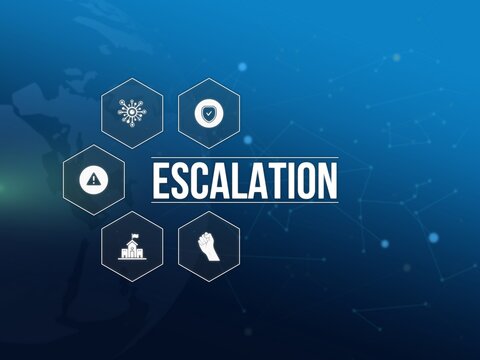Introduction
Navigating the complexities of customer escalation requires a strategic and empathetic approach. This guide provides insights into the various facets of Customer Escalation Management, offering a comprehensive understanding and actionable strategies.
Understanding Customer Escalation
Customer escalation occurs when a customer’s issue or complaint goes beyond the initial customer support interaction. It often requires specialized attention and a higher level of expertise to find a satisfactory resolution.
Importance of Effective Escalation Management
Effective escalation management is crucial for maintaining a positive brand image and customer trust. It showcases a commitment to customer satisfaction and helps in turning potentially negative situations into opportunities for goodwill.
Key Components of Customer Escalation
Explore the fundamental elements of a robust escalation management system, including clear communication channels, well-defined protocols, and empowered support teams.
Common Customer Escalation Scenarios
Identify the typical situations that lead to customer escalations, such as product defects, service disruptions, or miscommunication. Understanding these scenarios is essential for proactive resolution.
Proactive Measures for Escalation Prevention
Prevent escalations by implementing proactive measures like comprehensive product training, preemptive issue identification, and continuous improvement in customer support processes.
Creating a Customer-Centric Escalation Policy
Craft an escalation policy that prioritizes the customer’s perspective, emphasizing swift resolution, effective communication, and customer satisfaction.
The Role of Technology in Escalation Management
Leverage technological advancements like AI-driven analytics and automated ticketing systems to streamline and enhance the efficiency of your escalation management process.
Handling Escalations with Empathy
A key element in successful escalation management is approaching each case with empathy. Understand the customer’s emotions and demonstrate genuine concern for their concerns.
Training Customer Support Teams for Escalations
Equip your customer support teams with the skills and knowledge needed to handle escalated situations diplomatically and effectively.
Real-life Success Stories in Escalation Management
Learn from real-world examples where companies successfully managed customer escalations, turning challenges into opportunities for customer loyalty.
Metrics and KPIs for Monitoring Escalation
Implement metrics and key performance indicators (KPIs) to measure the effectiveness of your escalation management strategy and identify areas for improvement.
Addressing Escalations on Social Media
In the age of social media, addressing customer escalations promptly and professionally is crucial to prevent reputational damage.
Escalation Management in the Age of AI
Explore how artificial intelligence is transforming the landscape of customer escalation management, providing quicker and more accurate solutions.
Collaborating Across Departments for Resolution
Effective resolution often requires collaboration across departments. Break down silos and encourage cross-functional communication for holistic solutions.
Building Customer Loyalty post-escalation
Convert escalated customers into loyal advocates by exceeding their expectations during the resolution process and beyond.
The Legal Aspects of Customer Escalation
Understand the legal implications of customer escalations and ensure your escalation management policies comply with relevant regulations.
Global Trends in Customer Escalation
Stay ahead of the curve by exploring global trends in customer escalation management, and adapting strategies to align with evolving customer expectations.
Balancing Automation and Human Touch
Achieve the right balance between automation and the human touch in escalation management, ensuring efficiency without sacrificing personalization.
Future-Proofing Your Escalation Management
Anticipate future challenges and trends in customer escalation management, ensuring your strategies remain effective in an ever-changing business landscape.
Case Studies: Successful Escalation Resolutions
Delve into case studies highlighting successful resolution stories, showcasing the positive impact of effective escalation management.
The Psychological Aspect of Customer Escalation
Explore the psychological dynamics of customer escalations, understanding the emotional toll on customers and tailoring responses accordingly.
Cultivating a Positive Brand Image Post-Escalation
Discover strategies to rebuild and enhance your brand image after a customer escalation, turning challenges into opportunities for positive brand perception.
Frequently Asked Questions (FAQs)
What is Customer Escalation Management?
Customer Escalation Management is a systematic approach to addressing and resolving customer complaints and issues that go beyond initial support interactions.
How can businesses prevent customer escalations?
Implement proactive measures such as comprehensive training, issue identification, and continuous improvement in customer support processes.
What role does empathy play in escalation management?
Empathy is crucial in understanding and addressing customer emotions, creating a positive experience even in escalated situations.
How can AI enhance escalation management?
AI-driven analytics and automated systems streamline and enhance the efficiency of escalation management processes.
Are there legal aspects to consider in escalation management?
Yes, it’s essential to understand and comply with relevant regulations to mitigate legal risks associated with customer escalations.
How can businesses rebuild trust post-escalation?
Rebuilding trust involves exceeding customer expectations during and after the resolution process, turning escalated customers into loyal advocates.
Conclusion
In conclusion, mastering Customer Escalation Management is integral to building a customer-centric brand. By understanding, preventing, and effectively resolving escalations, businesses can foster customer loyalty and enhance their overall reputation.
